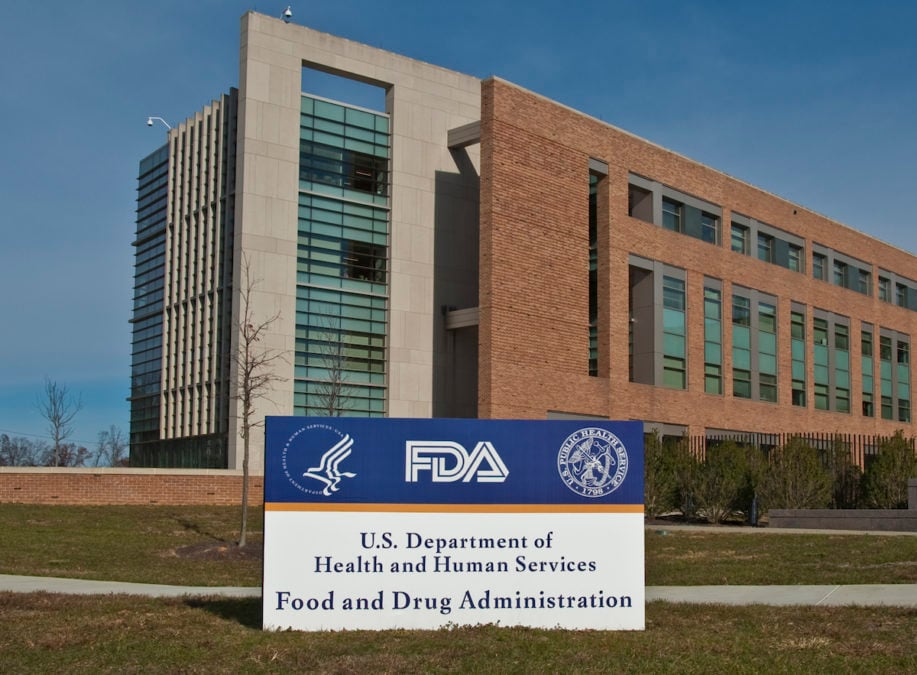
With a national blood shortage due to COVID-19, U.S. senators are calling on the Food and Drug Administration to lift restrictions on blood donations by gay and bisexual men. Photo: FDA
With a national blood shortage due to COVID-19, U.S. senators are calling on the Food and Drug Administration to lift restrictions on blood donations by gay and bisexual men.
“For the first time, the nation’s leading blood donation organizations, including the Red Cross, have declared a national blood supply crisis due to the continued impact of the COVID-19 pandemic,” the senators, led by Democrat Tammy Baldwin of Wisconsin, wrote in the letter, released Thursday. We urge the Food and Drug Administration (FDA) to quickly act on the best available science and update its outdated and discriminatory blood donor deferral policies for men who have sex with men (MSM), a long overdue step that would dramatically increase the eligible donor base.”
The letter is addressed to Secretary of Health and Human Services Xavier Becerra and Acting FDA Commissioner Janet Woodcock.
In 1983, early in the AIDS crisis, the U.S. barred men who have sex with men from ever donating blood. Since then, technology has been developed to screen blood for HIV, the virus that causes AIDS.
In 2015, the FDA began allowing gay and bi men to donate blood if they had abstained from sex for a year. In 2020, the abstinence period was shortened to three months. But that’s still too long, Richard Benjamin, former chief medical officer at the American Red Cross, told NBC News.
“If you are infected with HIV, for the first one to two weeks you will test negative. So there’s a scientific rationale for saying, ‘Well, if there’s risk, there needs to be a delay,’” Benjamin said. “But it’s not three months — it’s more like about 10 days.”
The letter from the senators, like statements made by LGBTQ+ activists previously, argues for a blood donation policy that focuses on individual donors’ behavior rather than singling out a group of people for their identity.
“Any policy that continues to categorically single out the LGBTQ+ community is discriminatory and wrong,” they wrote. “Given advances in blood screening and safety technology, a time-based policy for gay and bisexual men is not scientifically sound, continues to effectively exclude an entire group of people, and does not meet the urgent demands of the moment. And further, with increased uptake of Pre-Exposure Prophylaxis (PrEP), which significantly reduces the likelihood that an HIV-negative individual will acquire HIV, many more gay and bisexual men are aware of their HIV status and are taking steps to eliminate their personal risk. Instead of the current categorical deferral guidelines, we must adopt evidence-based policies focused on assessment of an individual’s risk, not inaccurate and antiquated stereotypes.”
These LGBTQ-related laws went into effect in California Jan. 1
The Red Cross declared a national blood shortage Tuesday, the first time it has ever done so. Other blood-banking organizations have made this declaration as well.
“In recent weeks, the Red Cross had less than a one-day supply of critical blood types and has had to limit blood product distributions to hospitals,” the organization said in a press release. “At times, as much as one-quarter of hospital blood needs are not being met.” Type O is particularly needed, according to the Red Cross. People with O negative blood can donate to anyone.
During the COVID-19 pandemic, there has been a 10 percent drop in the number of blood donors in the U.S. and a 62 percent decline in blood drives at schools, the Red Cross added.
The senators’ call comes as other countries lift deferral periods on blood donations by gay and bi men. France and Greece did so this week, Israel took that action in October, and authorities in Canada have recommended removing all questions about gender and sexuality from blood donor screenings. The Red Cross and other medical groups, such as the American Medical Association, have recommended ending the deferral period as well.
The FDA has issued a statement saying it is “considering the possibility of pursuing alternative strategies that maintain blood safety” but needs more information before changing its policy.
The senators signing the letter, in addition to Baldwin, include 19 Democrats and two independents who caucus with the Dems. Baldwin, a lesbian, is one of two senators from the LGBTQ+ community; the other, bisexual woman Kyrsten Sinema of Arizona, was not among the signatories.
This article originally appeared on Advocate.com, and is shared here as part of an LGBTQ+ community exchange between Q Voice News and Pride Media.
